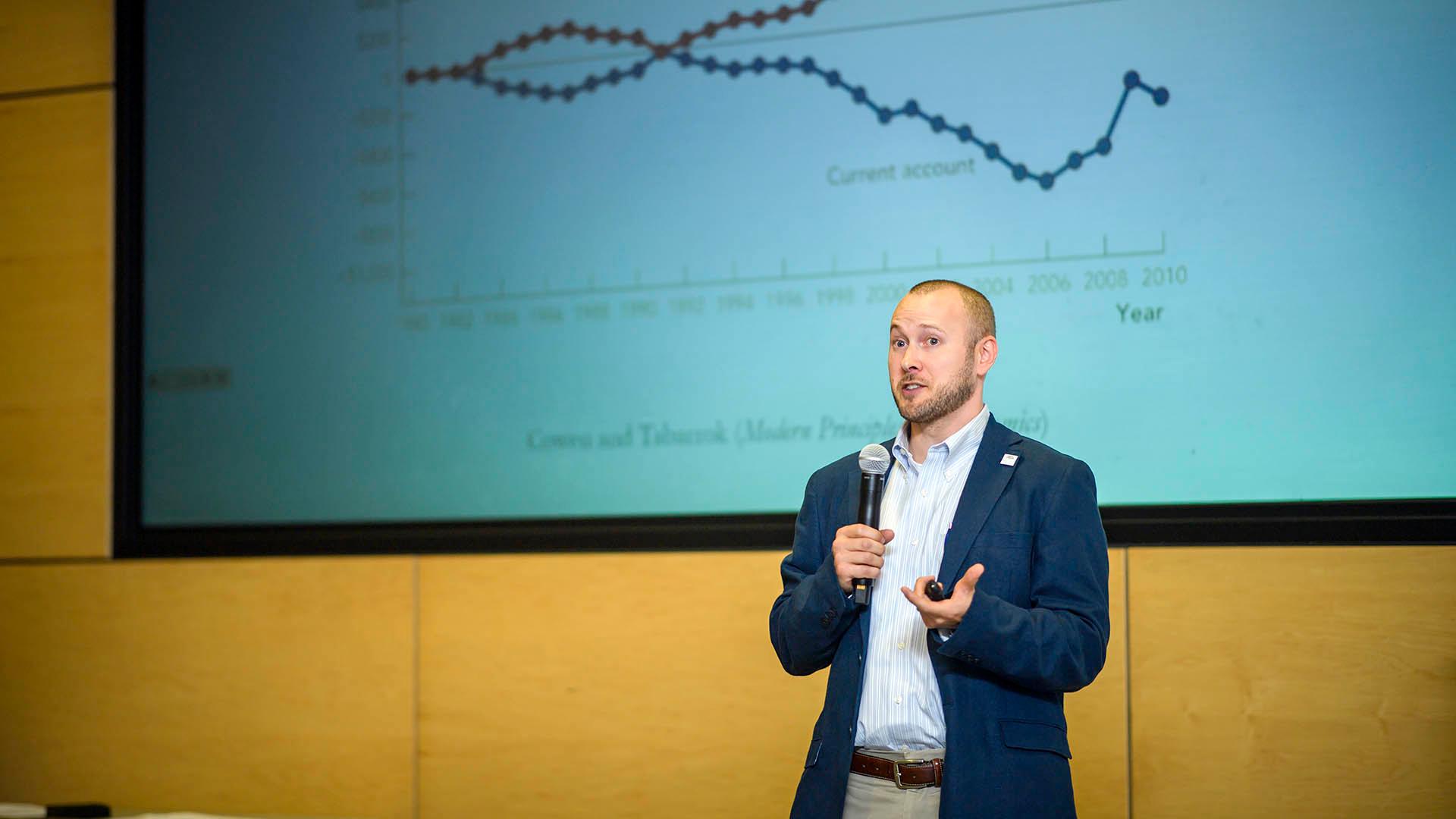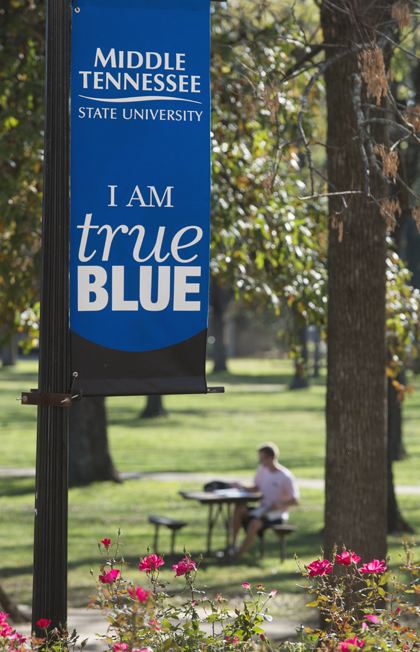
Economics
Economics touches on societal issues, such as poverty and gender, and many students go on to careers in public service or law.
Economics, B.S.
Students desiring a more flexible program than outlined in the B.B.A. degree in Economics may elect to pursue a B.S. degree in Economics. Candidates for this degree are not required to complete the Jennings A. Jones College of Business requirements, but they must meet the specific B.S. degree requirements listed in this catalog (Academic Policies and Procedures).
Any student electing the B.S. alternative should consult directly with the department chair to develop an acceptable degree program. This degree is offered through the College of Liberal Arts and is not considered a degree in business administration. A maximum of 25 percent of courses for a B.S. degree in Economics can be taken in business courses. Students must complete at least one minor.
Related Media

Students who major in Economics can seek work in the field of microeconomics, which focuses on individual firms and consumers, and macroeconomics, which analyzes national income and growth. Career opportunities are available in the following general areas:
- Banking
- Consulting
- Government
- Higher education
- Insurance
- Law
- Manufacturing
Employers of MTSU economics alumni include:
- Belmont University
- Federal Reserve
- FedEx
- Franklin Synergy
- J.P. Morgan Chase
- Merrill-Lynch
- Pricewaterhouse Coopers
- Regional Economic Models Inc.
- Reliant Bank
- TennCare
- Tennessee Advisory Commission on Intergovernmental Relations
- U.S. departments of Commerce, Defense, Labor, and State



CONTACT US

Please fill in the form below and we will contact you very soon










